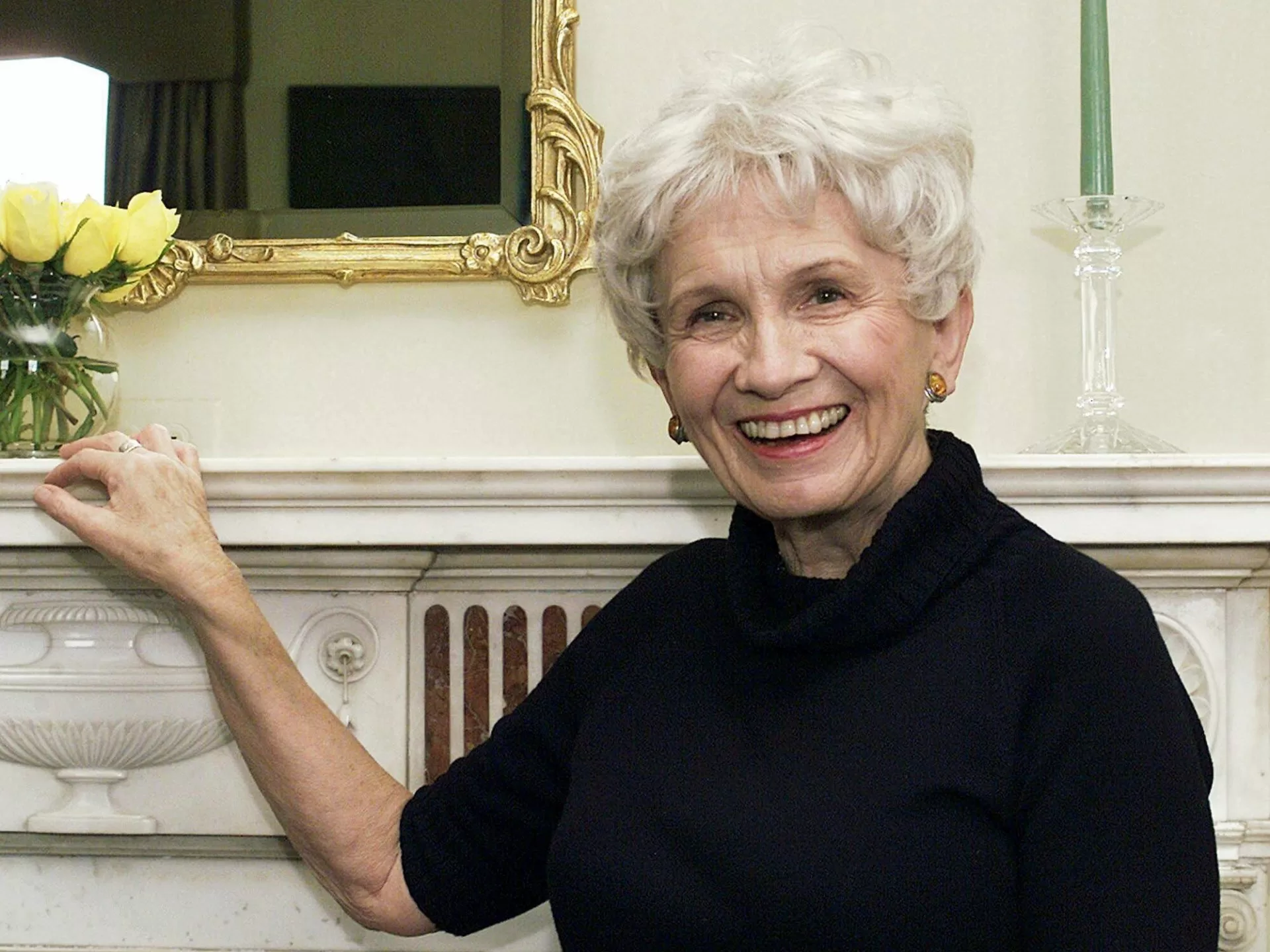Munro was renowned for her short stories, which focussed on the frailties of the human condition.
Munro died at her home in Port Hope, Ontario, publisher Kristin Cochrane, chief executive officer of McClelland & Stewart, said in a statement on Tuesday.
“Alice’s writing inspired countless writers … and her work leaves an indelible mark on our literary landscape,” Cochrane said.
Munro published more than a dozen collections of short stories, which she focused on the frailties of the human condition and set in the rural Ontario countryside where she grew up.
Awarded the International Booker Prize for her body of work in 2009, and the Nobel Prize in Literature in 2013, Munro was diagnosed with dementia about a decade ago and was living in a care home.
Canadian Prime Minister Justin Trudeau said the world had “lost one of its greatest storytellers”.
“A true literary genius … her short stories about life, friendship, and human connection left an indelible mark on readers,” he said.
Munro was born on July 10, 1931, in Wingham, Ontario. Her father raised foxes and poultry, while her mother was a smalltown teacher.
Munro decided she wanted to be a writer when she was 11, and never wavered in her career choice.
“I think, maybe I was successful in doing this because I didn’t have any other talents,” she once explained in an interview.
“I’m not really an intellectual,” Munro said. “There was never anything else that I was really drawn to doing, so nothing interfered in the way life interferes for so many people.”
“It always does seem like magic to me.”
Munro’s first story, The Dimensions of a Shadow, was published in 1950, while she was studying at the University of Western Ontario.
Munro was three times awarded the Governor General’s Award for fiction, the first for Dance of the Happy Shades, a collection of stories published in 1968. Who Do You Think You Are (1978) and The Progress of Love (1986) also won Canada’s highest literary honour.
Her short stories were often published in the pages of prestigious magazines, such as The New Yorker and The Atlantic. Her last collection of work, Dear Life, appeared in 2012.
The characters in Munro’s stories were often girls and women who led seemingly unexceptional lives but struggled with issues ranging from sexual abuse and stifling marriages to repressed love and the ravages of age.
She was often likened to Anton Chekhov, the 19th-century Russian known for his brilliant short stories – a comparison made by the Swedish Academy when it awarded her the Nobel Prize.
Calling Munro a “master of the contemporary short story”, the Academy also said: “Her texts often feature depictions of everyday but decisive events, epiphanies of a kind, that illuminate the surrounding story and let existential questions appear in a flash of lightning.”
